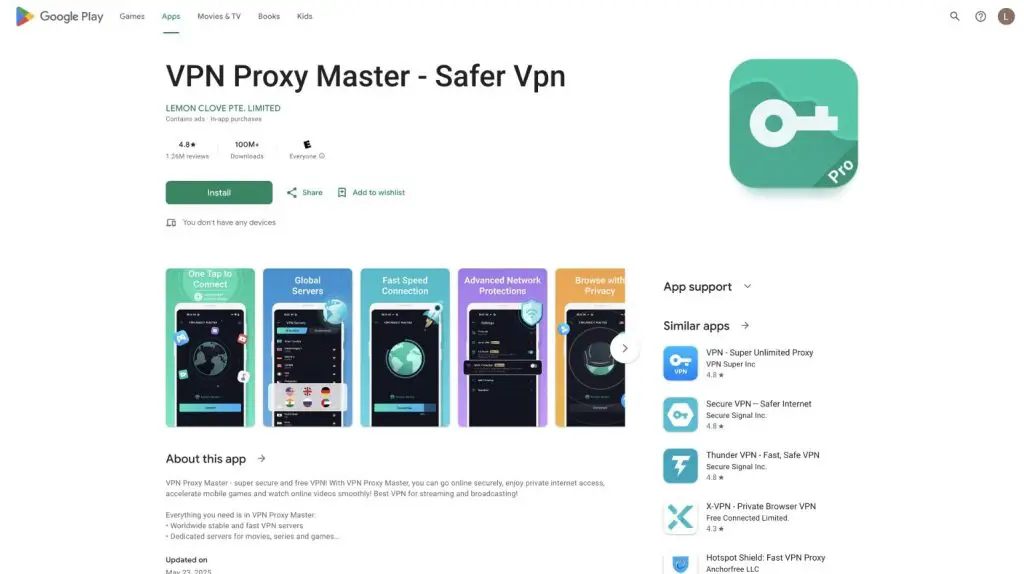
Researchers from the Tech Transparency Project have reported that at least 17 free VPN applications with alleged ties to China remain available on the U.S. versions of Apple’s App Store and Google Play. Notably, major tech companies may be profiting from these applications, despite the significant risks they pose to user privacy.
The initial investigation by TTP, published in April, revealed that the data of millions of users from over twenty VPN services may have been transmitted to China without their knowledge or consent. Five of these applications are reportedly linked to Qihoo 360, a Shanghai-based company previously sanctioned by the United States for its suspected connections to Chinese military institutions.
Six weeks later, TTP’s updated report confirms that the majority of these apps remain accessible in the U.S. versions of both the App Store and Google Play. Moreover, the researchers uncovered indications that Apple and Google may be financially benefiting from these services. According to their findings, over twenty of the top one hundred free VPN apps in the U.S. App Store have covert affiliations with China.
Among the applications tied to Qihoo 360 are Turbo VPN, VPN Proxy Master, Thunder VPN, Snap VPN, and Signal Secure VPN. Despite the initial report’s findings, several of these apps are still listed on Apple’s store. Other services cited in the report include X-VPN, Ostrich VPN, VPNIFY, VPN Proxy OvpnSpider, WireVPN, Now VPN, Speedy Quark VPN, AppVPN, HulaVPN, and Pearl VPN.
The situation is similar on Google Play, where the same four Qihoo 360 apps, along with seven additional Chinese-origin VPN services, remain accessible to U.S. users. TTP’s latest review also reveals that many of these applications offer in-app purchases—suggesting that Apple and Google may be receiving a share of the revenue from user subscriptions and premium features.
Furthermore, a number of these apps include advertisements, which serve as another revenue stream. As an example, researchers cited a screenshot from Turbo VPN’s Google Play page dated May 8, 2025, clearly indicating the presence of ad-supported content.
Apple responded by stating that it enforces strict requirements for VPN developers and prohibits the unauthorized sharing of user data with third parties. However, the company clarified that a developer’s geographic origin does not influence app availability in the store. At the time of publication, Google had yet to issue a statement.
Researchers also confirmed that these VPN apps are available on the U.K. versions of both platforms, suggesting that the issue may extend to users in other regions as well.


